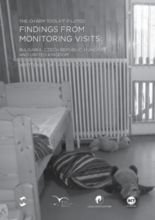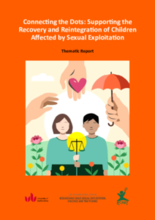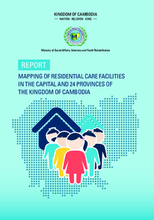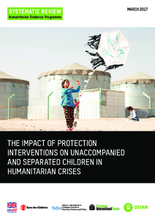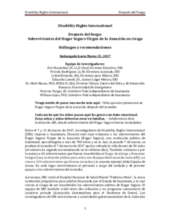Displaying 871 - 880 of 1482
This report is one of several outputs arising from the project “Identifying and Preventing Abuse of Children with Mental Disabilities in Institutions.” The report presents findings from the monitoring of European institutions where children with intellectual disabilities and children with psychosocial disabilities live on a permanent or semi-permanent basis, through the development of tools and guidance aligned with international human rights law and policy.
This report starts to collate evidence on what appears to be important to children who have experienced sexual exploitation.
This study explored the experiences of adoptive parents who chose to place their intercountry adopted child in out-of-home care due to the child's disability.
The objective of this paper is to scope the context of the problem of children going missing from out-of-home care in Australia and to distinguish what has been and needs to be researched.
This study examines signs of reactive attachment disorder and disinhibited social engagement disorder at age 12 years in 111 children who were abandoned at or shortly after birth and subsequently randomized to care as usual or to high-quality foster care, as well as in 50 comparison children who were never institutionalized.
This mapping significantly advances the current knowledge of the state of institutionalization of Cambodian children.
This literature review looks at the most current interventions on safe feeding practices for children with neuromotor disabilities who cannot feed themselves.
This systematic review examines the impact of protection interventions on unaccompanied and separated children, during the period of separation, in humanitarian crises.
This study aimed to assess the prevalence and risk factors of depression, anxiety, stress and low self-esteem among institutional Malaysian adolescents.
Entre el 7 y 11 de marzo de 2017, investigadores de Disability Rights International (DRI) viajaron a Guatemala para entrevistar los sobrevivientes de vivienda institucional. Este documento presente la información recopilada y las recomendaciones de DRI a Guatemala.

